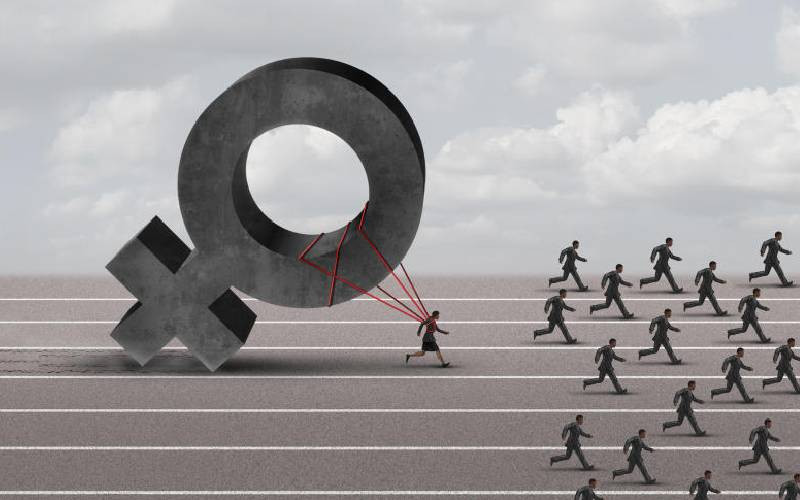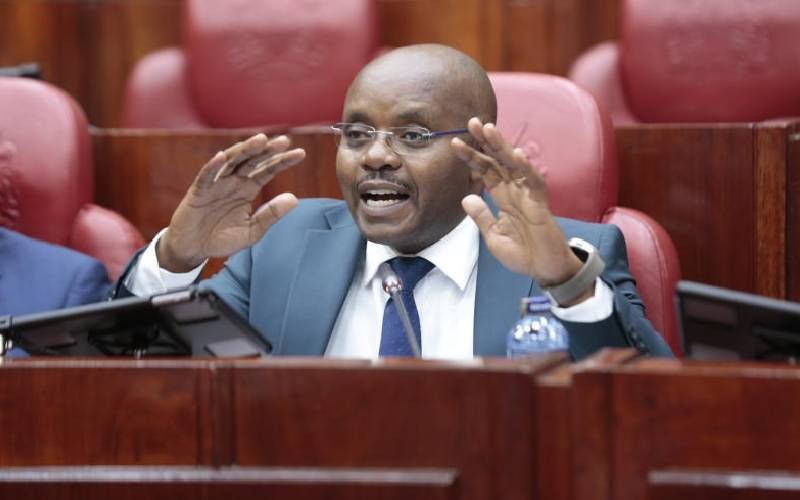Like in many countries, debate on gender equality continues to dominate socio-economic and political platforms in Kenya. Although Kenya has made great strides towards attaining gender equality, much more needs to be done to empower women.
The United Nations Population Fund defines gender equity as the process of being fair to women and men. To ensure fairness, strategies and measures must be available to compensate for historical and social disadvantages that prevent women and men from operating on a level playing field. This eventually leads to progressive societies. Notably, no country can confidently claim to have achieved gender equality. This is a universal issue which requires progressive efforts to address.
In Kenya, the Constitution is categorical that every person is equal before the law and has the right to equal protection, and equal benefit of the law. According to the supreme law, women and men have the right to equal treatment, including equal opportunities in political, economic, cultural and social spheres.
The Constitution places emphasis on principles such as equality, equity, inclusiveness and non-discrimination; all critical aspects in gender mainstreaming. It is also worth noting that under the Constitution, there has been a progressive record of women involvement in leadership as well as in decision-making. In that regard, the Economic Survey 2020 shows that chief administrative secretaries comprised 33.3 per cent of women in appointive decision-making positions in the public service in 2019.
This move has augmented the goal of the national policy on gender and development on the achievement of gender equality and women empowerment for national development. Nevertheless, efforts to enhance women’s participation to attain sustainable development are inevitable.
Sadly, in the wake of the Covid-19 pandemic, the milestones made to empower women and young girls have once again been endangered by the fault lines of inequality, a matter that hampers our economic and social-political development.
An analysis commissioned by UNDP indicates that by 2021, around 435 million women and girls globally, will live on less than $1.90 a day, including 47 million pushed into poverty as a result of Covid-19. So far, majority of women have continued to lose jobs, a matter that requires urgent efforts if we are to see economies thriving.
Looking back at the steps we have made, the milestones attained in women empowerment demonstrate how essential gender equality is in driving progressive businesses. It is increasingly becoming clear that supporting gender equality is as important as supporting investments whose returns are lucrative beyond imagination.
With women remaining highly under-represented in our corporates and institutions, there is need for joint efforts by both genders to attain this goal.
During the United Global Impact Forum on uniting businesses for a better world, one fundamental issue that was echoed by speakers across the globe was that gender mainstreaming is a core pillar in running progressive businesses. This entails enacting and implementing programmes on gender equity, gender equality and women empowerment.
Also worth mentioning are efforts by United States Agency for International Development under the Women’s Global Development and Prosperity Initiative. The organisation has set in motion the Engendering Utilities Programme which has helped improve gender equality in various companies, KenGen included. KenGen joined the programme in February 2020 and has since seen results in its technical division where we have adopted demand-driven coaching while incorporating gender equity executive leadership programme. Currently, the organisation is using the programme to build the capacity of the company’s leaders to implement gender interventions.
As an institution which recognises the importance of women’s economic empowerment, KenGen is keen on creating an environment in which female employees can thrive. One way in which we are doing that is through the Pink Energy Initiative, which has played an important role in encouraging and facilitating women to achieve their potential.
The challenge to organisations is to establish a more gender-balanced workplace by operationalising tailor-made gender equity interventions. Such interventions will eventually contribute to an environment in which gender equity is an important value and women can productively contribute to the achievement of organisational goals.
Ms Miano is the MD and CEO of Kenya Electricity Generating Company PLC
Stay informed. Subscribe to our newsletter
 The Standard Group Plc is a
multi-media organization with investments in media platforms spanning newspaper
print operations, television, radio broadcasting, digital and online services. The
Standard Group is recognized as a leading multi-media house in Kenya with a key
influence in matters of national and international interest.
The Standard Group Plc is a
multi-media organization with investments in media platforms spanning newspaper
print operations, television, radio broadcasting, digital and online services. The
Standard Group is recognized as a leading multi-media house in Kenya with a key
influence in matters of national and international interest.
 The Standard Group Plc is a
multi-media organization with investments in media platforms spanning newspaper
print operations, television, radio broadcasting, digital and online services. The
Standard Group is recognized as a leading multi-media house in Kenya with a key
influence in matters of national and international interest.
The Standard Group Plc is a
multi-media organization with investments in media platforms spanning newspaper
print operations, television, radio broadcasting, digital and online services. The
Standard Group is recognized as a leading multi-media house in Kenya with a key
influence in matters of national and international interest.







